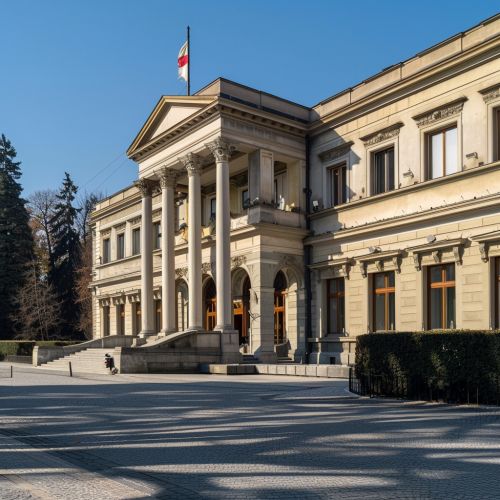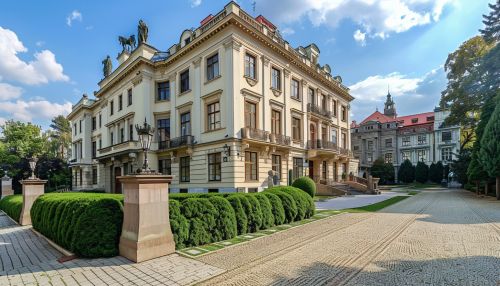President of Poland
Overview
The President of Poland is the head of state of Poland. Their duties include representing Poland in the international arena, ensuring the observance of the Constitution, and safeguarding the sovereignty and security of the country. The President has the right to dissolve the Sejm (the lower house of the Polish parliament) in certain situations, and has a significant role in legislative processes.
History
The office of the President of Poland has a long and complex history. It dates back to the interwar period, when the Second Polish Republic was established in 1918. The first President, Gabriel Narutowicz, was elected by the National Assembly in 1922. The role of the President during this period was largely ceremonial, with the real power lying with the Prime Minister and the Council of Ministers.


Powers and Duties
The President of Poland has a wide range of powers and duties, which are outlined in the Constitution of Poland. These include the power to veto legislation, the power to propose new laws, and the power to dissolve the Sejm in certain circumstances. The President also has the duty to represent Poland in international affairs, and to ensure the observance of the Constitution.
Election
The President of Poland is elected by popular vote for a term of five years. A candidate for President must be a Polish citizen, must be at least 35 years old, and must collect at least 100,000 signatures of support from Polish citizens. The election is held in two rounds, with the second round taking place if no candidate receives more than 50% of the vote in the first round.
List of Presidents
Since the establishment of the office in 1922, there have been a total of 11 Presidents of Poland. The current President, as of 2021, is Andrzej Duda, who was elected in 2015 and re-elected in 2020.
Role in Government
The President of Poland plays a crucial role in the functioning of the Polish government. They are responsible for appointing the Prime Minister, who is then approved by the Sejm. The President also has the power to dissolve the Sejm and call for new elections in certain circumstances.
Controversies
The office of the President of Poland has not been without controversy. There have been several instances where the actions of the President have led to political crises, such as the constitutional crisis of 2015-2016. In addition, the role of the President in the legislative process has been a subject of debate.
